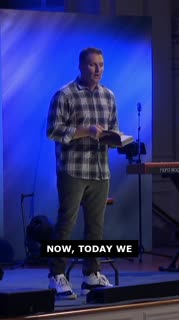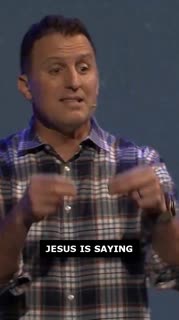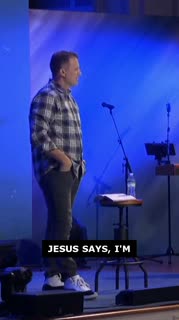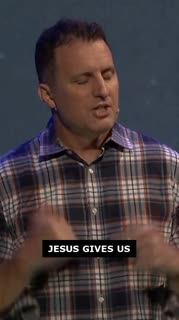Embracing Faith: Jesus as Our Shepherd and Gate
Devotional
Sermon Summary
Bible Study Guide
Sermon Clips
"That's what God wants you to do when it comes to your relationship with him, to be an expert at recognizing his voice and responding. And that's what we're going to find Jesus teaching us about today in John chapter 10. So John chapter 10, we'll read this together." [00:43:00] (18 seconds)
"Now, today we find ourselves in John 10, and we find in John 10 something unique. You guys have been tracking with me the last several weeks. We've been talking about the structure of the gospel of John. Now, if you're new, I just kind of want to catch you up. John, the gospel of John, is not just written just kind of like haphazardly, where John's like writing down like fun stuff. He's like, tell me a story about Jesus. I'm going to write that one down. He's kind of like just putting it together. No, he's actually got a structure, a framework that you have to kind of look for that helps you understand what he's doing." [00:44:05] (32 seconds)
"Because it's not just Jesus kind of putting a shout out about himself to the people. He's making a claim for divinity when he says these phrases. The word. I am. Was actually a loaded phrase. I am is this name of God. It's what God called himself when Moses met God at the burning bush. Moses asked God. He says, God, you're telling me to go save the people from Egypt. Who should I say sent me? And God says, tell them I am is sending you. So God is saying, my name is I am. I have always been. I will always be. That's who I am." [00:46:16] (47 seconds)
"That he's the one who allows people to get in and out. If you want to get into what it means to be saved, to be in a relationship with God, there is no other person that is your access point other than Jesus. That's what he's saying. You see, the world will tell us that there are many ways to God. You can get to God all different ways. We're all like on the same team. That's not what Jesus says. Jesus says there's no way to God. I am the gate. It's the only way to get in. It's the only way to get out. I'm it." [00:50:42] (32 seconds)
"Jesus is saying that he's the gate is a direct response to the miracle of healing this blind man. And he tells them that all of them, including the people who are standing in front of him, are thieves and robbers. Like that's a great way to like make friends and influence people, right? Telling other people like, hey, you're a thief and a robber. Like that's what Jesus is saying. And he says, the sheep aren't listening to you. That's why they're following me." [00:52:38] (26 seconds)
"And God sent Jesus because we needed a savior, not just a good example. And Jesus comes as the gate so that God can bring us into his family. That's what God is doing through Jesus. Which brings us to the second I am statement, which is that Jesus is the good shepherd. Jesus says, I'm the gate. Says, I'm the good shepherd. That's verse 11." [00:56:17] (27 seconds)
"Jesus says, I'm the kind of shepherd that's willing to lay my life down for my people. I'm not just going to fight for them. I'm going to die for them. Listen, if you don't know Jesus, the reason we're crazy about Jesus around here is he's the only one who is willing to lay his life down for us and give himself for us when we did not like him, appreciate him, or want him. And yet he laid his life down for us anyway because he wanted us to be a part of his people." [01:00:59] (30 seconds)
"Jesus gives us a picture of how his people are supposed to act. That when they hear his voice, they respond and follow him. That's what you see in the very beginning of our passage. Verse 2. Go all the way back to the beginning. John 10, verse 2. Jesus says, the one who enters by the gate is the shepherd of the sheep. The gatekeeper opens it for him and the sheep hear his voice. He calls out his own sheep by name and leads them out. And when he has brought all of his own outside, he goes ahead of them. The sheep will follow him because they know his voice. They will never follow a stranger. Instead, they'll run away from him because they don't know the voice of strangers." [01:03:27] (39 seconds)
"Being the kind of people who are available to hear God's voice and say, God, whatever it is you want me to do. Whether that's follow you with my life in vocational ministry. Getting baptized. Following God in all the details of my life. I'm just somebody who's going to say yes to God. That's all I want. I just want to follow God's voice with everything I've got." [01:05:58] (20 seconds)









